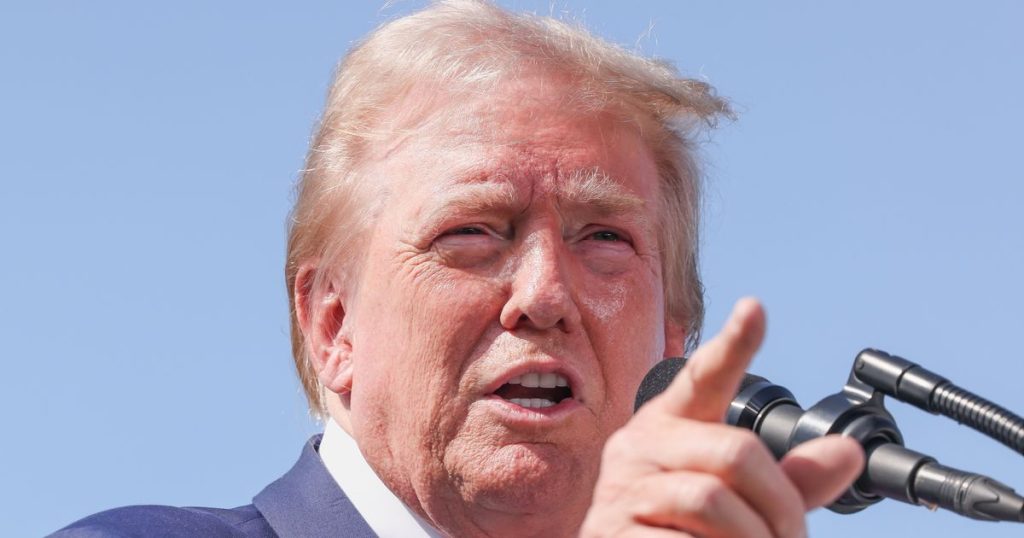Donald Trump made a bonkers claim at his campaign rally in Las Vegas, suggesting that Kamala Harris had received debate questions in advance and was being fed answers through an earpiece during the recent vice presidential debate. Trump speculated about someone talking to Harris through an earpiece, telling her what to say and how to say it. This baseless conspiracy theory was also promoted by conservative commentator Laura Loomer, who insinuated that Harris’s choice of earrings at the debate was somehow linked to the alleged earpiece.
Days before his rally remarks, Trump had planted the seeds of this conspiracy theory during an appearance on “Fox & Friends.” He questioned the fairness of the debate and hinted at the possibility that Harris had received an unfair advantage. The Trump campaign was contacted for comment on the claim but did not respond immediately. The unfounded insinuation that Harris was fed debate questions and answers through an earpiece was met with skepticism and criticism from many observers.
The former president’s unsubstantiated allegation adds to a pattern of baseless claims and conspiracy theories propagated by him and some of his followers. Laura Loomer, who has a history of promoting conspiracy theories including the belief that the 9/11 attacks were an inside job, joined in spreading the unfounded earpiece theory about Harris. The claim, which lacked any evidence or support, reflects the increasingly divisive and conspiratorial nature of political discourse in the United States.
The controversy surrounding Trump’s rally remark and Loomer’s tweet highlights the challenges of navigating and fact-checking misinformation in the digital age. Social media platforms have become breeding grounds for the spread of conspiracy theories and false information, often leading to confusion and polarization among the public. Combating misinformation requires a multi-faceted approach that involves media literacy, critical thinking, and a commitment to seeking out verified sources and reputable information.
Critics and fact-checkers swiftly debunked the earpiece conspiracy theory, pointing out the lack of evidence and the absurdity of the claim. Accusations of cheating or receiving unfair advantages in debates have been common in politics, but they are usually unfounded and serve to sow doubt and division. The spread of baseless conspiracy theories undermines the integrity of the electoral process and erodes public trust in democratic institutions.
In the wake of Trump’s rally comment and the subsequent backlash, discussions about the role of conspiracy theories and misinformation in politics have intensified. The need for responsible leadership and a commitment to truth and evidence-based discourse has become more urgent than ever. Addressing the roots of conspiracy theories and misinformation requires a coordinated effort from political leaders, media organizations, and the public at large. Ultimately, the spread of baseless claims and unfounded insinuations like the earpiece conspiracy theory undermines the foundations of democracy and threatens the integrity of the electoral process.


